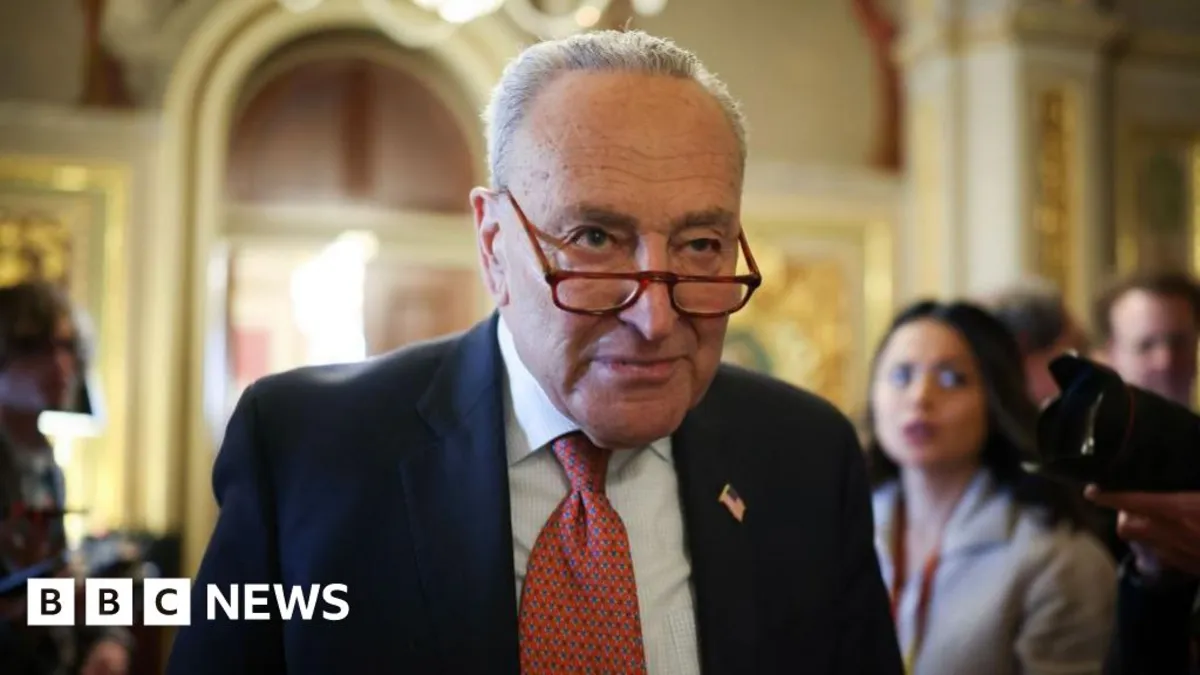
The United States may successfully avert a looming government shutdown after a significant shift in stance by top Democrats. Senate Minority Leader Chuck Schumer announced his support for a Republican funding bill aimed at keeping the government operational. This announcement came on Thursday, following his previous commitment that he and other Democrats would block the bill, which is designed to fund government operations through September.
As the situation unfolds, it appears that a few other Democrats might also choose to support the funding measure. However, the political landscape remains uncertain. Democrats are faced with two primary options: either assist Republicans in passing the funding bill or stand firm in their opposition. Should they decide to oppose the bill, they risk bearing the brunt of the blame for any potential shutdown, which is set to commence at 23:59 ET on Friday.
In his address on the Senate floor, Schumer emphasized that there are no winners in a government shutdown. He described the decision as a Hobson's choice: either proceed with the current bill or risk plunging the country into the chaos of a shutdown under Donald Trump's leadership. Schumer characterized the Republican-led funding bill as deeply partisan, yet expressed his apprehensions about the repercussions of a shutdown.
He warned that a shutdown would grant Trump and influential figures like Elon Musk the opportunity to significantly undermine essential government services at an accelerated pace. The Senate is expected to vote on the measure Friday afternoon, and the outcome remains critical for the future of government operations.
Despite being in the minority, Democrats possess a procedural advantage. Senate rules stipulate that most legislation requires 60 votes to pass in the 100-member chamber. While the 47 Democrats and independent allies lack the numbers to advance their own funding bill, they can effectively block the Republican proposal if they unite in opposition. This strategy has been fervently advocated by many liberals who are eager for Democrats to take a stronger stance against the current administration.
The ongoing political brinksmanship carries inherent risks. Some conservative factions would welcome a government shutdown that halts programs they perceive as wasteful or ineffective. Elon Musk has even suggested that such a scenario could help identify non-essential government functions for permanent elimination as part of his initiative for a Department of Government Efficiency.
Moreover, Republicans would be quick to assign blame for any shutdown—and its resultant disruptions—directly to the Democrats. An extended shutdown would have direct consequences for the very workers and programs that Democrats are striving to protect.
On Wednesday, the Republican-controlled House of Representatives passed the funding resolution that aims to keep the government running through September, albeit with specific conditions. The new resolution proposes an increase in military spending by $6 billion while cutting $13 billion from non-defense programs and allocating additional funds for border enforcement. Additionally, it includes provisions that would complicate Democrats' efforts to rescind Trump's tariffs on Canada, Mexico, and China.
Many Democrats have expressed their refusal to support the House resolution, insisting on the need for modifications to the bill before they can lend their approval.